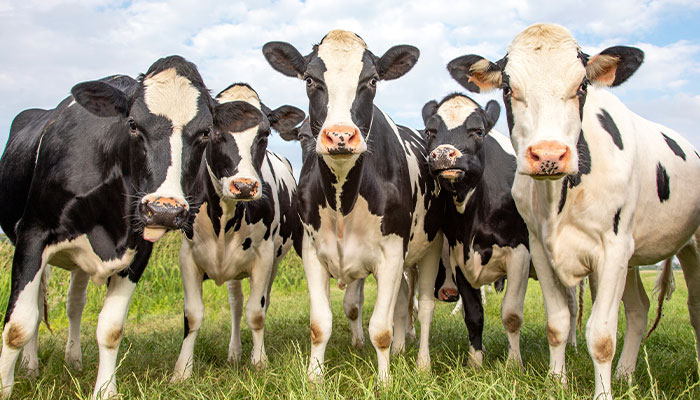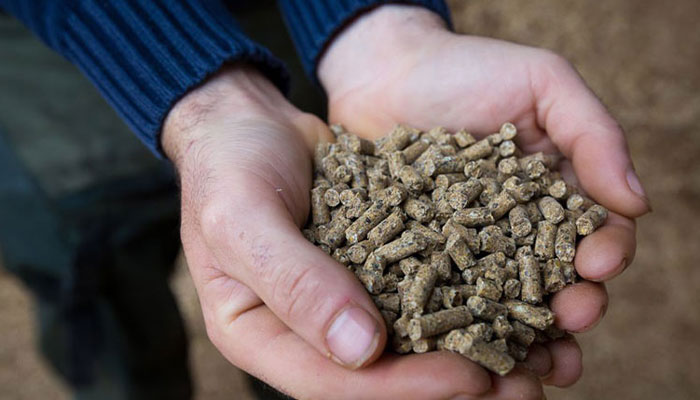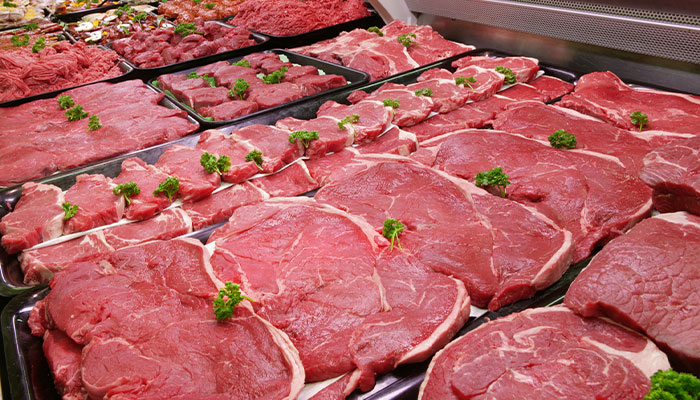Greenhouse gas emissions from cattle are still on the rise despite sustained efforts over decades to reduce them, new Macquarie University research shows.

'Burping machines': Methane emissions from beef and dairy cattle have risen by 10 per cent since 1990 to 72.4 million tonnes in 2017.
Human geographer Dr Andrew McGregor, an Associate Professor in Macquarie's Department of Social Sciences, led a team of researchers that traced 30 years of UN reports and scientific research aimed at mitigating the methane expelled by cattle when they burp – a process responsible for as much as 5.5 per cent of climate change-causing global emissions.
Yet as the world's cattle herd has grown from 1.3 billion to 1.5 billion in the past 20 years, methane from cattle has risen by 10 per cent since 1990 to 72.4 million tonnes in 2017, according to figures from the UN's Food and Agriculture Organisation (FAO). Cattle industries in total, including deforestation, transport, refrigeration and feed production, account for 9.5 per cent of global emissions.
"Cattle are burping machines – munch and burp, munch and burp; there is a little bit of emission from flatulence, but it is mostly from burps," says McGregor.
We are still struggling, still experimenting, and not really having an up-front debate about how many cattle we can actually have on this planet.
It was in 1990 that the UN's Intergovernmental Panel on Climate Change (IPCC) predicted that methane reductions of 25 to 75% could be achieved by improving digestive processes in cattle – an optimistic forecast that has proven false, the researchers say in their meta-analysis, although efforts continue apace.
"One thing that stood out to us was how grand a scale of intervention is being proposed –there are experiments taking place at every scale, from the microbial through to the global; the ambition to reduce cattle methane is just immense," says McGregor, whose team analysed 500 research papers as well as key FAO and IPCC reports.
"The approach is to change cattle bodies, herds and farms, and change how we eat in order to address this problem."
But McGregor says the continuing rise in emissions suggests that the research is not necessarily addressing the central problem, which is the increasing cattle population as opposed to the amount that each animal emits.
"Emissions from the increasing size of the global herd are outpacing emissions reductions at individual and herd scales," he says.
"That led us to the slightly controversial conclusion that the research sustains the ongoing expansion of the industry because there is this expectation that there will be a technological solution some time in the future – which may or may not be the case.
"If we think we have a technical solution on the way, people are more comfortable with it … we don't need to change our dietary habits or we don't need new regulations about cattle populations, because there is a solution on the horizon.
"That has very much been the agenda for the past 30 years.
"When I looked back at the old IPCC reports, they had a lot of confidence that reductions could be made and gave the impression that the technology was almost there to achieve it, so I was surprised that 30 years later, we haven't yet had that breakthrough – we are still struggling, still experimenting, and not really having an up-front debate about how many cattle we can actually have on this planet."
From digestive tracts to cattle bodies
The study highlights some of the vast research taking place to tackle the methane issue.

Digestion question: Mootral's feed supplement, which the start-up says can cut methane emissions from cattle by 30 per cent, is one of many scientific initiatives worldwide. Photo credit: Mootral
In Queensland, scientists are experimenting with seaweed, legumes and cattle microbiomes, with researchers claiming that daily seaweed doses can reduce cattle methane by up to 99 per cent.
In Switzerland, the start-up Mootral aims to secure €3 billion of an estimated €17 billion future methane mitigation market with a feed supplement they claim can cut emissions by 30 per cent.
In New Zealand, scientists have genetically engineered ryegrass they believe will achieve a 23 per cent reduction in the methane produced by animals that graze on it.
Making beef cattle grow and die more quickly, and dairy cattle supply milk more efficiently for longer, is now positioned as a win-win situation.
While some experiments have shown promise at individual or herd scale, McGregor says, the logistical challenges of getting feed supplements and other innovations to global cattle populations are immense.
Beyond targeting cattle's digestive systems, initiatives such as the Global Roundtable on Sustainable Beef are researching ways to breed "climate friendly" cattle bodies.
"Making beef cattle grow and die more quickly, and dairy cattle supply milk more efficiently for longer, is now positioned as a win-win situation for farmers and the climate," the researchers say.
The 'peak livestock' push
In an open letter to the IPCC, scientists from around the world have urged it to consider the emerging concept of 'peak livestock' as part of their strategy in addressing the climate change crisis.

Justice matters: The researchers found there has been little effort to reduce beef and dairy consumption, but increasing efforts to target farmers in poorer countries.
Peak livestock, McGregor explains, recognises that the problem from a climate perspective is not that cattle burp or humans consume too much beef and dairy, but that there are too many cattle.
It calls for richer countries to declare a time frame before they start to gradually reduce their herds, and to replace animal with plant production while repurposing non-arable agricultural land as carbon sinks.
As for poorer countries, McGregor says they should not be penalised for their lack of access to methane-mitigation technologies.
"Our meta-analysis showed that while there has been very little effort to reduce beef and dairy consumption, there are increasing efforts to target small holder production in poorer countries," he says.
"The problem then becomes the inefficiencies of poorer communities in producing animals, rather than the more obvious problem that we are eating too much meat in the wealthier countries.
"If there is a limit to how many cattle we can produce without contributing overly to climate change, the question should be, how can we have a more just food system that makes access to nutritious low emissions diets, which may include occasional products derived from cattle industries, equally available to all."
Dr Andrew McGregor is Associate Professor in the Department of Social Sciences.






